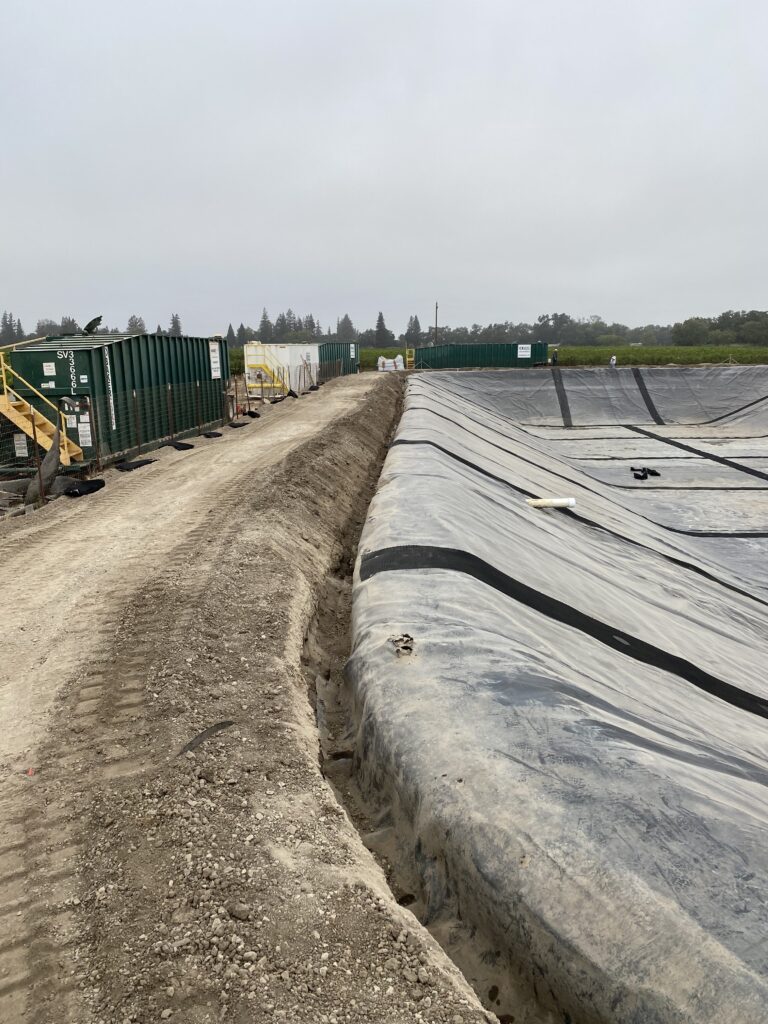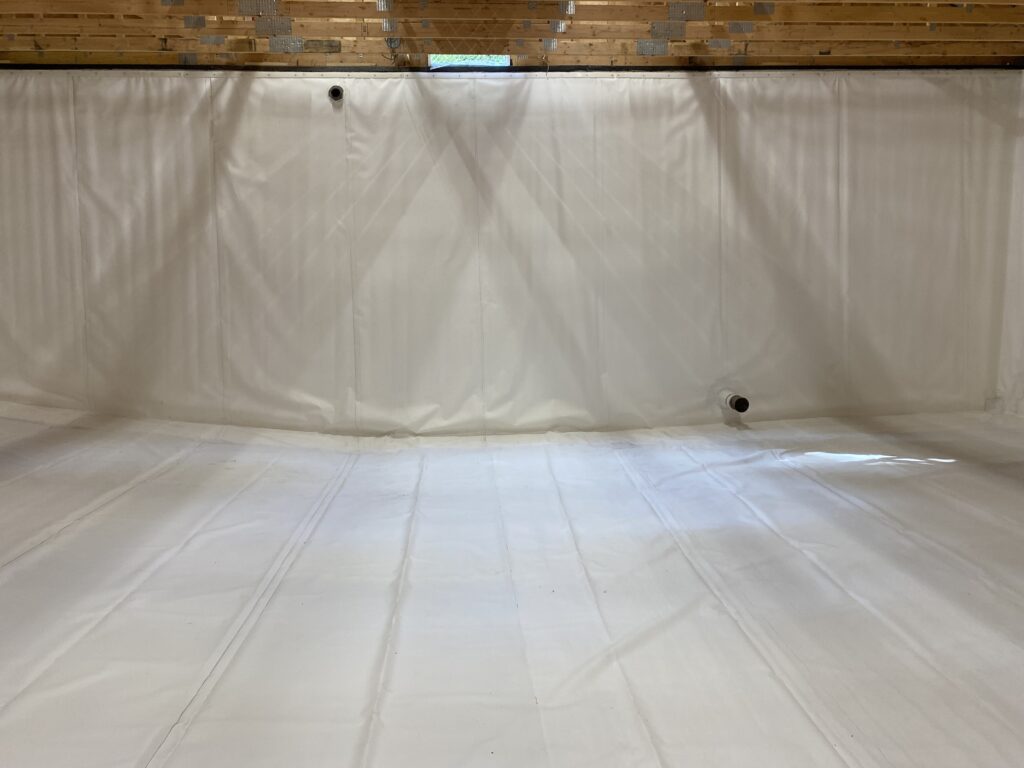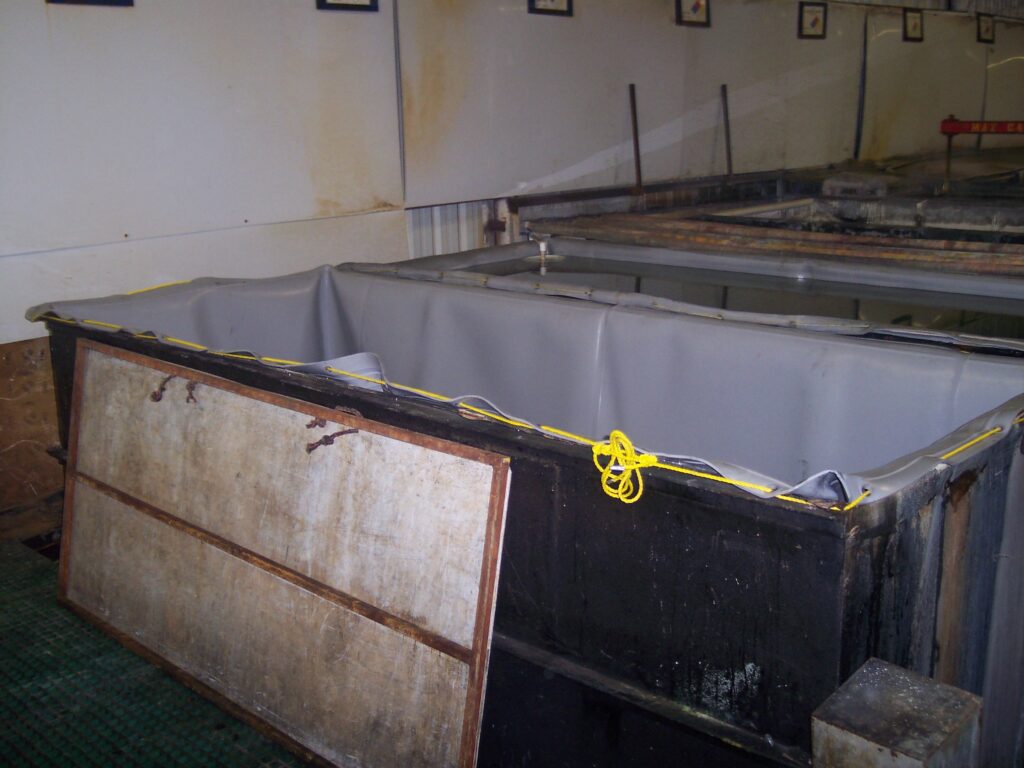
In the highly competitive field of liner manufacturing, ensuring quality liner fabrication is more than a luxury—it is critical to success, particularly in regions with extreme climates like California. Known for its fluctuating and often severe weather conditions, the state faces everything from scorching heatwaves to sudden, intense rainfall. These environmental factors pose significant challenges for industries reliant on containment solutions.
At Carson Liners, we utilize reinforced polypropylene (RPP) and chlorosulfonated polyethylene (CSPE) because these materials provide excellent resistance to UV exposure, chemicals, and environmental wear. This ensures our liners, whether used in geomembranes, water tank liners, or containment systems, can withstand the harsh demands of environmental protection and waste management, agriculture and aquaculture, water management, industrial and chemical processing, and construction industries without frequent failures or maintenance. Our commitment to quality liner fabrication is evident in every product we deliver.
For businesses operating in these industries, using high-quality liners is essential to ensure resilience and longevity. Poorly fabricated liners are more prone to degradation, leading to costly leaks and system failures, which can have environmental and financial consequences, particularly in California’s stringent regulatory environment. This is where we step in, offering premium liners and expertise to withstand the state’s unique climate and operational challenges.
Geomembranes, for example, are often used in landfills and wastewater treatment plants. At Carson Liners, we ensure these geomembranes offer superior tensile strength, essential for withstanding California’s heat and UV exposure. For water tank liners, which are crucial in agriculture and water conservation, our RPP and CSPE materials ensure excellent resistance to chemicals and UV degradation, protecting water quality while maintaining long-term durability.
When it comes to plating and containment liners used in industrial environments, it’s crucial that they can handle exposure to harsh chemicals without breaking down. We use materials that resist corrosive substances and harsh chemicals while providing reliable performance in extreme weather conditions. The durability and flexibility of our liners prevent costly leaks and reduce the risk of environmental contamination.
Enhanced Durability and Longevity
We employ premium-grade materials in our fabrication processes to ensure that our liners can withstand California’s harsh weather conditions. Our approach to quality liner fabrication guarantees that our products, including geomembranes and containment liners, are engineered to last longer, reducing the need for frequent replacements and preventing environmental hazards from leaks or system failures.
Superior Sealing Capabilities
Superior sealing is essential for preventing leaks in both water tank liners and containment systems. We use advanced welding technology to strengthen seam integrity, ensuring our liners can withstand fluctuating temperatures and heavy water loads without compromising their structure. By focusing on both high-quality materials and cutting-edge fabrication techniques, we guarantee that even the weakest points—seams—remain robust and durable, effectively preventing leaks under pressure or during extreme weather conditions. This attention to detail enhances the overall reliability of our liners.
The Impact of California’s Weather on Liners
California’s weather is characterized by hot, dry summers and wet winters, with varying conditions across the state. Regions like the Central Valley experience intense heat, often surpassing 100°F, which can cause liners made from subpar materials to degrade rapidly. Meanwhile, coastal areas face frequent temperature fluctuations and exposure to salty, humid air, accelerating wear and tear on containment liners.
Heat Degradation
According to the California Department of Water Resources, temperatures in the Central Valley can average over 90°F for extended periods, causing low-quality liners to crack, warp, or fail prematurely.
UV Exposure
California ranks as one of the sunniest states, with an average of 284 sunny days per year. Prolonged UV exposure can break down the polymers in inferior liners, leading to leaks and environmental hazards.
Heavy Rainfall and Flooding
In the winter months, areas like Northern California can see heavy rainfall, with records of up to 27 inches annually in some regions. This influx of water can overwhelm poorly fabricated liners, causing breaches that result in costly environmental cleanups and operational downtime.
California’s agricultural and industrial operations often expose liners to chemicals and high UV radiation. We use additives that enhance UV resistance, ensuring our liners don’t degrade over time. Our RPP and CSPE ensure the liners resist chemicals commonly found in agricultural runoff and industrial waste, preventing costly environmental damage.
Why Quality Liner Fabrication Matters
Quality liner fabrication involves using superior raw materials and advanced manufacturing techniques, ensuring our liners can endure extreme weather conditions without compromising performance. Carson Liners, known for rigorous quality control, offers liners with exceptional tensile strength and puncture resistance, vital for applications in California’s agricultural and industrial sectors.
Seams and welds are often the weakest points of a liner. Quality liner fabrication ensures these critical areas are expertly sealed to prevent leaks, even under high-stress conditions like rapid temperature changes or heavy water loads. We employ state-of-the-art welding technology, providing robust seam integrity that stands up to California’s demanding environment.
High-quality liners are specifically engineered to resist chemical degradation and UV damage, which are common in California due to agricultural runoff and intense sunlight. We use liner additives that enhance UV resistance, ensuring the liners do not become brittle or discolored over time.
Investing in quality liner fabrication reduces the need for frequent repairs and replacements. In California, where water scarcity and environmental regulations are top concerns, the use of reliable liners can prevent costly fines and water loss. According to the Environmental Protection Agency, leaks from poor-quality containment systems account for billions of gallons of lost water annually in the U.S., underscoring the importance of robust liner solutions.
The unpredictable nature of California’s weather demands liners that are up to the challenge. Quality liner fabrication isn’t just about meeting industry standards—it’s about exceeding them to provide reliable, durable, and cost-effective solutions. Carson Liners exemplifies the importance of quality liner fabrication, ensuring that businesses across California can operate safely and efficiently, no matter what the weather brings.
For more information on the importance of quality liner fabrication in liner manufacturing, speak to one of our experts. Fill out the form below or email us at sales@carsonliners.com.


